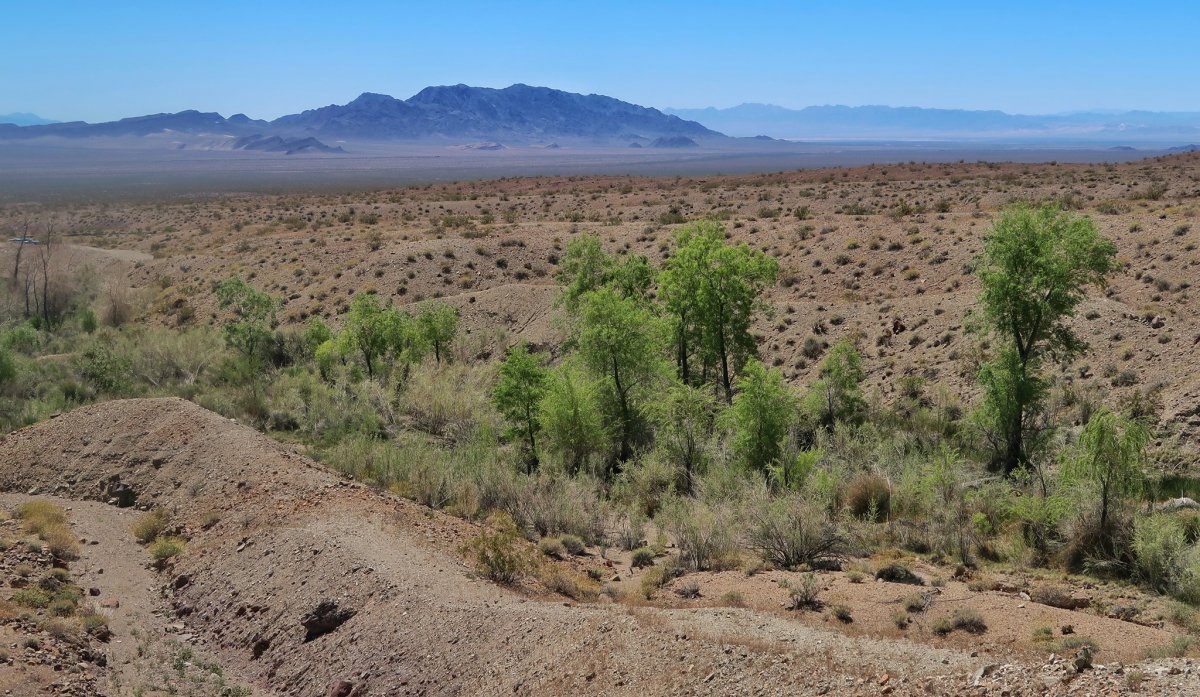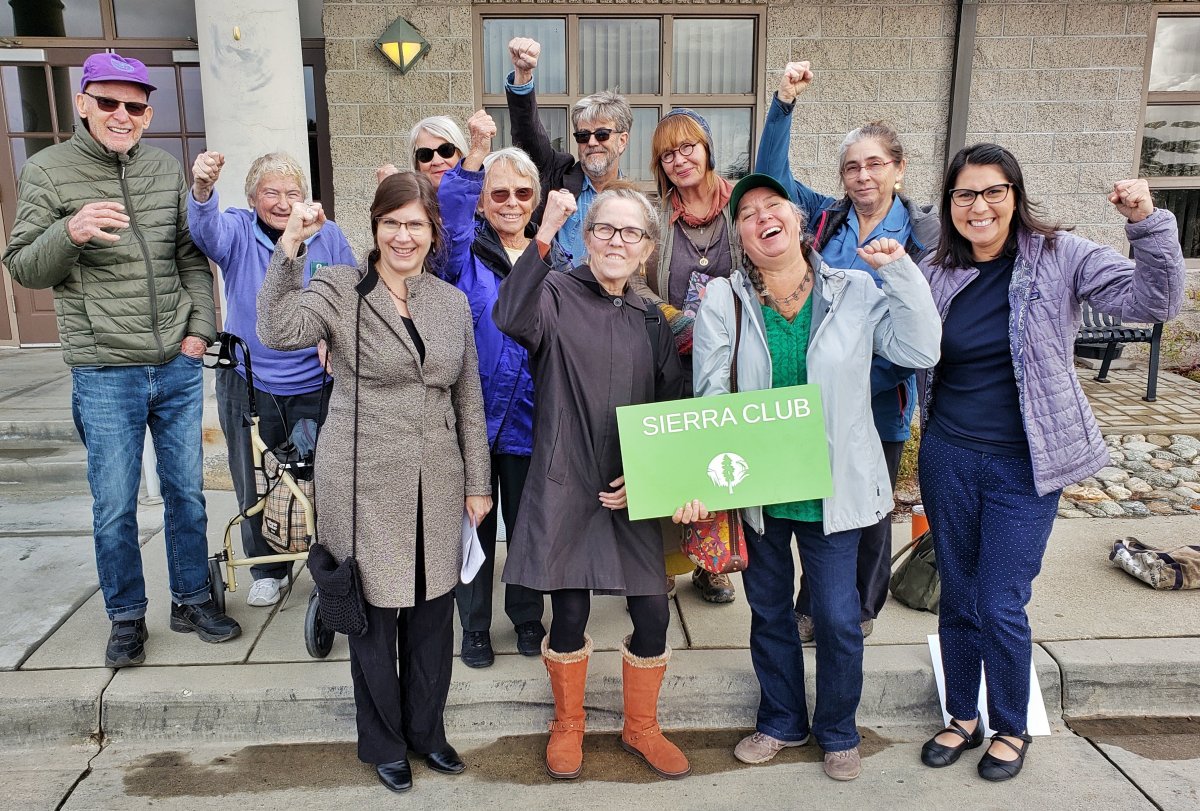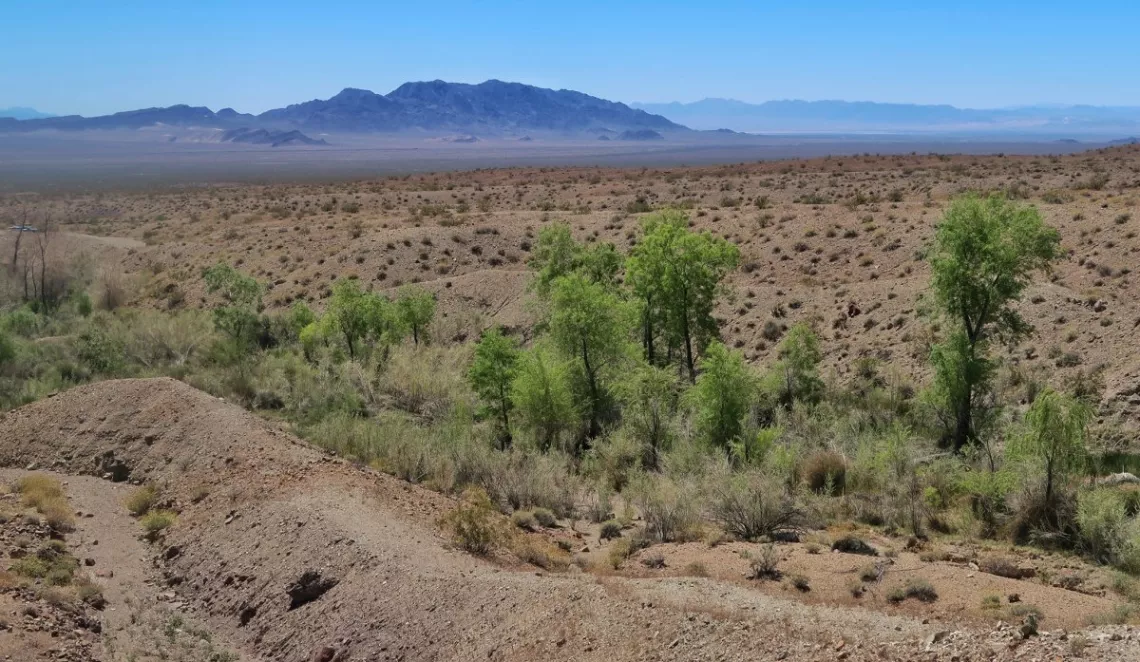LA County Water District Efforts to Support Desert-Damaging Water Mining Project Falter as Cadiz Inc. Suffers Major Election Setbacks
Updated 12/07/20

Lower section of Bonanza Spring, Mojave Trails National Monument, provides a rare source of water all year round for bighorn sheep and other wildlife. The Cadiz water mining project threatens to drop water levels and dry up the springs. John Monsen, all rights reserved.
Cadiz Inc, a Los Angeles-based corporation, still hopes to drill for water under sensitive public lands in our arid California Deserts near Joshua Tree National Park, pulling out 50,000 acre-feet of water each year and lowering desert aquifers. But the odds of this happening are slim with the corporation facing November election setbacks locally and nationally. This is good news for project opponents, which include every environmental group in California offering an opinion as well as by Native American Tribes and Mojave Desert business owners.
The Biden Administration is likely to reinstate the stringent federal environmental review of the project that was required by the Obama Administration but waived by the Trump Department of the Interior. A Federal review killed an earlier version of the Cadiz project 20 years ago when the United States Geological Survey found it to be unsustainable. Cadiz is still reeling from two influential, published, peer reviewed journal articles published in 2018 that established that the Cadiz project would damage fragile desert springs like Bonanza Springs on which wildlife depends.
A partnership between Cadiz and Three Valleys, an LA County water district, to produce a pro-Cadiz study of the desert-damaging project has stalled despite Cadiz providing $805,000 to finance it. Three Valleys is the wholesale water provider for the Claremont, Glendora, Pomona, and Diamond Bar areas, yet is managing the study of a project over 150 miles away that it has no regulatory authority over.
Char Miller, a Professor of Environmental Studies at Pomona College, has described the study as “yet another corporate-sponsored PR campaign masquerading as objective science.” Board members are still coordinating with Cadiz about the study behind closed doors, while publicly claiming they are independent. A Public Records Act request showed that three board members -- Bob Kuhn, David de Jesus, and Brian Bowcock -- met in May with Cadiz CEO Scott Slater. Slater commented on the close relationship Three Valleys has with Cadiz during an October 2019 presentation at a consumer media conference, saying he was pleased that “some friends of the project” were going to be studying it.
The board could reconsider its support of the Bonanza Spring Study, headed up by long-time Cadiz advocate Anthony Brown. Two Sierra Club-endorsed board candidates, Danielle Soto of Pomona, and Mike Ti of Rowland Heights, ousted two incumbent board members November 3rd, leaving only three board members of seven (Kuhn, Bowcock and de Jesus) who voted to take $805,000 in Cadiz money and four who did not.
Although Three Valleys bills the Brown-led study as objective and impartial, their consultant, Anthony Brown, was listed as a project supporter on the Cadiz website until late last year when the local residents pointed it out to the Three Valleys board. Brown reviewed a 2018 Cadiz in-house study that found that the project would not damage desert springs, what he is being asked to impartially study for Three Valleys two years later. The Cadiz press release for its 2018 white paper noted that Brown had “reviewed the report and concurred with its findings.” Brown has written op-eds and articles in favor of the project as well as heading up an analysis of the Cadiz project in 2013 paid for by Cadiz that held the water mining project would be harmless.
Three Valleys has contended that it just wants to find out if the Cadiz project is sustainable, if the district can count on its water. Three Valleys is at no decision point about the Cadiz project and the district has never shown that it actually needs the water. It has many options supported by the Sierra Club like conservation and recycling available to it.
The board tried a variety of strategies between June 2019 and the study authorizing vote in February 2020 to justify taking the $805,000 from Cadiz. Board President Bob Kuhn often called Cadiz an “applicant.” He justified taking Cadiz money since “the applicant pays.” Study opponents pointed out that Cadiz was not applying to the district for anything and that the district had no regulatory authority over the project. Cadiz was providing study funding voluntarily.

Sierra Club members, Claremont residents, and others gathered late last year outside Three Valleys Municipal Water District headquarters in Claremont to protest the district's plans to accept $805,000 from Cadiz corporation to study the environmental impacts of the desert damaging Cadiz water mining project. John Monsen, all rights reserved.
The Cadiz-Three Valleys study has been stalled not by COVID 19 but by the failure of Three Valley’s lead consultant Anthony Brown to obtain needed permits for the work. “Brown’s consulting firm, Aquilogic, failed to fully understand that federal land managers would require justification for Aquilogic to move heavy equipment into roadless areas to drill test wells on highly sensitive desert public lands like Bonanza Springs,” said Chris Clarke, Associate Director of the National Park Conservation Association’s (NPCA) Desert Program. “Environmental groups warned about this exact point in the February debate over authorizing the study.”
Cadiz also needs a state operating permit under a 2019 state law. Cadiz must demonstrate to the state that its project will not damage desert, including its natural and cultural resources -- a very high standard to be used in an extensive review process that could take up to two years. Cadiz’s own lobbyist confirmed the project was dead in the water, testifying before a state legislative committee, “There is no project in this state that could meet the standard contained in this bill.” The Department of Fish and Wildlife, one of the agencies that will be reviewing Cadiz’ application to operate, warned Cadiz in a letter in December 2018 that the project would threaten California-protected desert bighorn sheep.
Study opponents assert that Cadiz desperately needs positive PR given all of the mounting negative evidence against it. “Three Valleys is trying to accommodate Cadiz and help them out without admitting it.” said the Sierra Club’s Robin Smith, Chair of the Diamond Bar-Pomona Valley Task Force. “ It makes no sense otherwise for the board to be studying a project that is extremely unlikely ever to be built.” Three Valleys GM Matt Litchfield, in a discussion in August 2019 at the Inland Empire Water District, disclosed that the idea for the study came from Cadiz, not Three Valleys.
The $805,000 Cadiz study is not without precedent. It is the second one that Three Valleys has conducted to benefit Cadiz. In late 2018, without any public meetings or public disclosure, the Three Valleys accepted $100,000 from Cadiz to fund a study “Toward the end of obtaining greater public confidence in the [Cadiz] Project,” hardly a neutral objective. When the first study was issued by Three Valleys in March 2019 their press release claimed the funding came from a party other than Cadiz until the real source was outed by the public. The Fenner Valley Water Authority was to pay $100,000 to Three Valleys for the study. What Three Valleys did not disclose was that the Fenner Valley Water Authority was to be reimbursed by Cadiz.
Three Valleys board President Bob Kuhn is a long-time supporter of the Cadiz project. In a June 2010 Cadiz press release still posted on the Cadiz website Bob said, "Cadiz has presented us with a unique opportunity, one that Three Valleys is excited to pursue.” The Cadiz Project affords us the chance to obtain a completely new, sustainable water supply…”
District press releases said that the Bonanza Spring Study would resolve the issue of the springs once and for all despite a decade of back and forth debate and highly regarded studies showing the danger of the project. “What the district has never been able to explain is why it is the job of a water district in Eastern LA County to try to conduct public relations for a corporate water vendor like Cadiz,” pointed out Neal Desai, Senior Program Director for the NPCA’s Pacific Region. “With such a strong showing of bias the study will not be taken seriously by any regulatory agency.”
John Monsen is an environmental campaign consultant and long-time Angeles Chapter public lands and equity advocate. He was a winner of the Chapter’s Extraordinary Achievement Award in 2017. John is Chair of the Chapter’s Forest Committee and Vice Chair of its Political Committee. He leads the Chapter’s efforts to stop the Cadiz water mining project as a member of its water committee. John served for seven years as a member of the Sierra Club’s National Field staff in Los Angeles.


